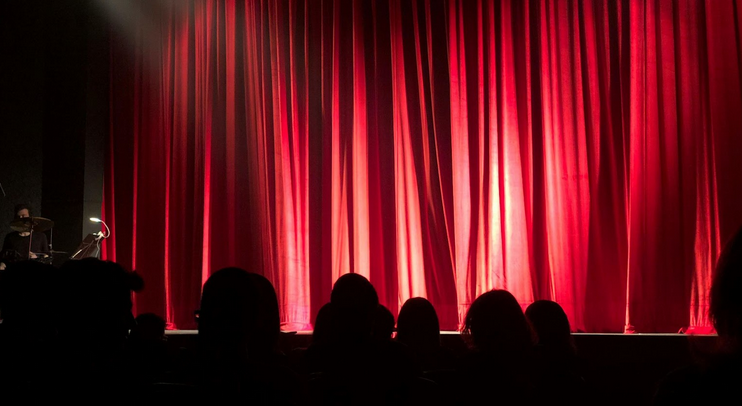How entertainment culture builds soft power between the UK and the world
October 6, 2025

Today, diplomacy is no longer confined to political negotiations or formal agreements. Instead, soft power, the ability to influence and attract through culture, values, and ideas, has become an essential tool in shaping international relations.
A compelling example of this is the UK’s global cultural footprint. Through entertainment, the UK builds bridges that foster mutual understanding, strengthen bonds, and pave the way for collaboration far beyond traditional diplomatic arenas.
Screen Time as a Cultural Connector
British television and digital streaming platforms have long played a major role in cultural diplomacy. Shows like The Crown, Peaky Blinders, and Doctor Who have earned devoted followings from North America to Asia. These productions do more than entertain. They export British history, humour and social commentary to the world.
Conversely, British audiences are increasingly exposed to international series through platforms like Netflix and Disney+, fostering cultural exchange from the other direction. Korean dramas, Nordic noir, and American comedies have all found a place in UK living rooms, creating shared reference points and sparking global conversations.
Beyond traditional media, online entertainment plays an equally important role in forging cultural ties. Digital platforms, from social media to gaming, create immersive spaces where people from different countries interact in real time. Even niche sectors like online gambling contribute to this dynamic.
For instance, UK casinos not on GamStop often attract a global user base, creating informal communities where players connect, compete, and share experiences. These virtual interactions may seem trivial on the surface, but they reflect a broader trend: entertainment is no longer passive consumption. It is participatory, social, and increasingly international.
A Universal Language
Sport remains one of the most powerful vehicles for soft power. The UK is home to some of the world’s most iconic sporting institutions, including the Premier League, Wimbledon and the British Grand Prix. These events capture global attention and shape perceptions of British culture, lifestyle, and values.
The international popularity of English football clubs, for example, turns fans from Bangkok to Buenos Aires into cultural ambassadors of sorts, embracing British chants, jerseys, and traditions. In return, UK stadiums welcome fans from around the globe, enhancing mutual appreciation and understanding.
International sporting events held in the UK also act as cultural showcases. London’s successful hosting of the 2012 Olympics, for instance, highlighted British creativity, heritage, and inclusiveness on a global stage. These are powerful elements of soft power in action.
Soundtracks of Soft Power
British music has long been one of the country’s most effective soft power exports, from The Beatles and the Rolling Stones to Adele and Stormzy. Today, British artists continue to top charts worldwide and influence fashion, language, and youth culture.
At the same time, international music has gained traction across the UK. Artists from Nigeria, South Korea, and Latin America now headline British festivals and sell out arenas, contributing to a multicultural music scene that reflects the UK’s openness to global influences.
Music festivals like Glastonbury or the BBC Proms don’t just celebrate entertainment. They represent platforms for cultural expression, collaboration, and diplomacy. The relationships built between artists, fans, and industry figures across borders are an often-overlooked but potent form of international engagement.
Film, Art and Shared Stories
British cinema, ranging from gritty social dramas to blockbuster franchises like James Bond and Harry Potter, serves as another soft power asset. The UK’s film industry not only attracts global talent and investment but also projects cultural values and storytelling traditions around the world.
Meanwhile, UK-based film festivals such as the BFI London Film Festival act as global meeting points for filmmakers, critics, and audiences. These festivals showcase international talent and encourage cross-cultural collaborations and co-productions.
Beyond film, British art institutions regularly engage in international partnerships. From touring exhibitions of British modern art to hosting collections of Indigenous, African, or Asian artworks, UK galleries and museums operate as cultural diplomats in their own right, promoting dialogue, diversity, and understanding.
The Strategic Role of Soft Power
Soft power operates subtly but profoundly. As international audiences become more familiar with British humour, storytelling, and values through entertainment, a deeper rapport takes root. Cultural familiarity reduces misunderstandings, fosters goodwill, and builds a foundation for political and economic cooperation.
The UK government has long recognised the strategic value of cultural diplomacy, investing in institutions like the British Council and BBC World Service to extend its cultural reach. However, it is often in informal spaces such as streaming services, stadiums, festivals, and online communities where soft power truly flourishes.
Conclusion
The UK’s global influence increasingly relies on the cultural connections it nurtures through entertainment. Whether through football, music, television, or digital platforms, these interactions create shared experiences that transcend borders and politics.
As the world becomes more interconnected, these cultural dialogues grow ever more important. In a time of geopolitical uncertainty, the soft power generated by the UK’s entertainment and cultural industries will remain a vital asset, building bridges, inspiring trust, and shaping international relationships for years to come.
